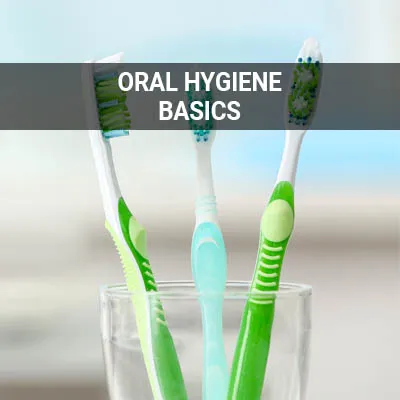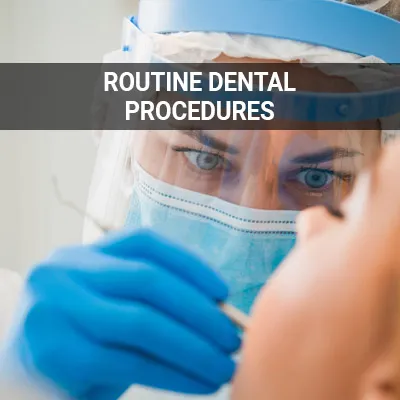Oral Cancer Screening Houston, TX
Oral cancer screenings can identify the signs of disease before it has spread. This may be beneficial to those in high-risk groups. Regular oral cancer screenings can give patients the advantage of treating cancer in the early stages when there is a higher chance for remission.
Oral cancer screenings are available at Dental Bright in Houston and the surrounding area. Early detection may make cancer treatment more effective. Call us at (713) 357-6355 to schedule an appointment today.
Why Have Regular Oral Cancer Screenings?
Regular oral cancer screenings can be as important as regular dental checkups. Fortunately, patients can ask to get both procedures done at the same time. As per the National Cancer Institute, oral cancer symptoms tend not to appear until the disease has spread. Early detection may make oral cancer easier to treat when the chances for remission are higher.
According to WebMD, everyone should have a dental checkup at least once a year. However, experts have yet to reach a consensus on how often patients should go in for an oral cancer screening. A dentist may be able to conduct a comprehensive exam to determine how frequently a patient should have screenings.
“Early detection may make oral cancer easier to treat when the chances for remission are higher.”
Groups at High Risk for Oral Cancer
Certain groups may benefit from regular oral cancer screenings more than others. Common risk factors include but are not limited to:
- A history of oral cancer
- Certain types of human papillomavirus (HPV)
- Regular consumption of a lot of alcohol
- Excessive amounts of time spent in the sun
- Tobacco use, in any form
Patients may find it beneficial to consult a professional about their medical history to better determine their risk for oral cancer.
“Some groups may benefit from regular oral cancer screenings more than others.”
Limitations of Oral Cancer Screenings
Although regular oral cancer screenings are integral to maintaining good health, Mayo Clinic points out that it may be difficult to detect abnormal cells through a simple visual exam. Thus, there is always a possibility that a small sign of cancer or precancerous lesion could go undetected.
A group of unusual cells does not always mean that the patient has cancer. Rather, the patient will have to undergo a biopsy to get a definitive answer. If it is cancerous, then early detection will afford the patient more treatment options.
While the evidence does not yet link screenings with reduced oral cancer deaths, regular screenings may help identify cancers early at a time when remission is more likely.
“While the evidence does not yet link screenings with reduced oral cancer deaths, regular screenings may help identify cancers early at a time when remission is more likely.”
Check out what others are saying about our dental services on Yelp: Oral Cancer Screening in Houston, TX
What to Expect During an Oral Cancer Screening
Oral cancer screening requires no special preparation, and patients can typically expect screening to take place during a routine dental appointment. In most cases, a basic oral cancer screening will consist of the dentist taking a thorough look at all the parts of the patient's mouth, including:
- The back of the throat
- The gums
- The insides of the cheeks
- The outside and the inside of the lips
- The roof of the mouth
- The tongue
Patients with dentures must remove the devices to allow Dental Bright to check the tissue underneath, along with the area underneath the jaw.
All in all, the screening should take less than five minutes.
“There is no special preparation required for an oral cancer screening, and patients can typically expect screening to take place during a routine dental appointment.”
Questions Answered on This Page
Q. How frequently should I get an oral cancer screening?
Q. Am I at high risk for developing oral cancer?
Q. What are the limits of oral cancer screenings?
Q. What can I expect during my oral cancer screening?
Q. Are there any additional tests after oral cancer screenings?
People Also Ask
Q. What should be included in an at home oral health routine?
Additional Tests After Oral Cancer Screenings
Depending on the patient's situation, the dentist may perform special tests in addition to the basic screening. More in-depth oral cancer screenings can involve the patient rinsing their mouth with blue dye to make any unusual cells more visible. Additionally, the dentist may choose to shine a light in the patient's mouth during the exam. This light will "highlight" abnormal tissue by making it appear white.
If any of these tests find signs of oral cancer or any possibly cancerous lesions, then the patient should undergo a biopsy. This procedure consists of removing a sample of cells for laboratory testing. The patient may also need to make a follow-up appointment to see if the abnormal area has grown or changed since detection.
“Depending on the patient’s situation, the dentist may perform special tests in addition to the basic screening.”
Frequently Asked Questions
Q. Do oral cancer screenings hurt?
A. There is little to no discomfort involved with oral cancer screenings. However, this may not be the case in treating advanced oral cancer.
Q. What are the warning signs of oral cancer?
A. In addition to possessing certain risk factors, patients should see a dentist immediately if they notice the following:
- Changes in denture fit
- Difficulty or discomfort swallowing
- Diminished ability to perform normal oral functions (such as chewing, opening jaw, swallowing)
- Mouth sores or ulcers, especially if they bleed easily or do not heal
- Pain and tenderness in teeth or gums
- Red or white patches in the mouth
- Unexplained lump in the neck, throat, or floor of the mouth
- Unexplained swelling or fullness in the neck
- Visible changes in the mouth tissue
Q. Which parts of the body can be affected by oral cancer?
A. Any part of the mouth can be affected by oral cancer. There are two categories of oral cancer: those that affect the oral cavity (lips, teeth, gums, front two-thirds of the tongue, floor and roof of the mouth, and inside of the lips and cheeks) and those that affect the oropharynx (middle region of the throat, including tonsils and the base of the tongue).
Q. How can I decrease my chances of getting oral cancer?
A. As of yet, there are no proven ways of completely preventing oral cancer. However, a general healthful lifestyle may help minimize your chances. Reducing your alcohol consumption, along with stopping or avoiding any tobacco use, may prevent exposing the cells in the mouth to any dangerous chemicals. Keeping an everyday sun protection regimen that involves putting sunscreen on your lips can also help, as can regular dental checkups.
Q. What are the stages of oral cancer?
A. There are four stages of oral cancer. In stage 1 oral cancer, the tumor is at or under 2 centimeters in size, and the cancer has not spread to the lymph nodes. In stage 2 oral cancer, the tumor is at or under 4 centimeters in size, and the cancer has not spread to the lymph nodes. In stage 3 oral cancer, the tumor could be larger than 4 centimeters but not spread to the lymph nodes. Alternatively, the tumor has spread to one lymph node but not any other parts of the body. In stage 4 oral cancer, the tumor can be any size, and the cancer has spread to other parts of the body. Oral cancer screenings can catch "stage 0" cancer when cells have yet to become cancerous. Cancers caught in the earliest stages have the highest five-year survival rates.
Dental Terminology
Learn More Today
Regular oral cancer screenings may help stop the disease before it has the chance to spread. At Dental Bright, we can help figure out the best preventative care plan for you. Call us at 713-357-6355 to schedule an appointment today.
Helpful Related Links
- American Dental Association (ADA). Glossary of Dental Clinical Terms. 2024
- American Academy of Cosmetic Dentistry (AACD). Home Page. 2024
- WebMD. WebMD’s Oral Care Guide. 2024
About our business, license, and website security
- Dental Bright was established in 2007.
- We accept the following payment methods: American Express, Cash, Discover, MasterCard, and Visa
- We serve patients from the following counties: Harris County
- We serve patients from the following cities: Houston, Sugarland, Missouri City, and City of Bellaire
- TX (License #18923). View License Information and Specifics
- National Provider Identifier Database (1194942888). View NPI Registry Information
- Norton Safe Web. View Details
- Trend Micro Site Safety Center. View Details
Back to top of Oral Cancer Screening











